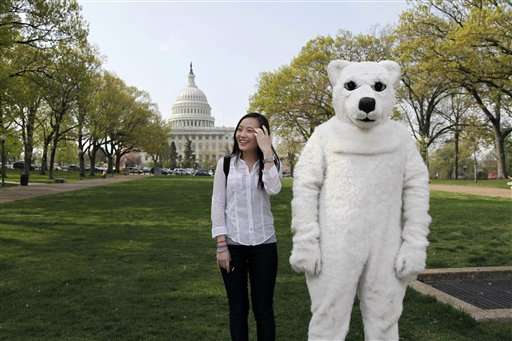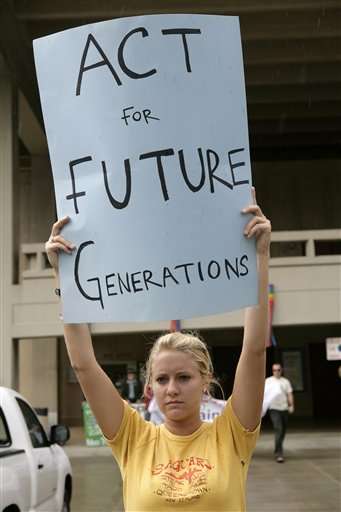Survey: US political and generation gaps on science issues

Age divides Americans on science issues just as much as political ideology, a new analysis of recent polling shows.
There are dramatic generation gaps in opinions on global warming, offshore drilling, nuclear power, childhood vaccines, gene modification to reduce a baby's disease risk, untested medicine use, lab tests on animals, and evolution, according to the Pew Research Center.
Pew analyzed 22 different science issues in a survey of 2,002 people nationwide last August and a few later polls to see what demographic factors divide the nation on science issues.
"The striking story is how different the patterns are depending on what the issue is," said Lee Rainie, Pew's director of science issues research. "There is not a one-size-fits-all explanation for the public's attitudes on science."
Political ideology remained a key reason for the nation's divide on climate change and energy use, but when it came to other issues, especially medical ones, age and factors such as race and education played a bigger role.
That was a reason for both pessimism and optimism, said Rush Holt, a former congressman who now heads the American Association for the Advancement of Science. He said "the trend in this country for ideology to replace evidence" makes him lose hope, but the views of younger Americans, generally in line with science, revive his spirits.

More than 70 percent of Democrats and independents who lean toward that party say Earth is warming because of humans, compared to 27 percent of their Republican counterparts. Sixty percent of people under 30 say climate change is real, compared to just 31 percent of people 65 and older.
Similarly, 61 percent of young people oppose increasing drilling for more energy offshore, while 60 percent of senior citizens favor it. Among the young, 56 percent opposed nuclear power, but 57 percent of seniors favored it.
While the opinions of younger people on energy and environment issues generally dovetailed with those of Democrats, they diverged on some medical issues.
Forty-one percent of younger people said parents should decide on whether to vaccinate children, compared to just 20 percent of seniors. Democrats were less likely to favor parents deciding on vaccines than Republicans.
When asked if people should have access to experimental medications that haven't been fully tested yet for safety, slightly more than half the young people said no, but nearly two-thirds of the people between age 50 and 64 said yes.
In younger adults, 56 percent approved of using genetic modifications to reduce disease risk for babies; among seniors, 56 percent oppose it.
On the issue of genetically modified food, the biggest factor was science education. The only groups of people who felt that genetically modified food were generally safe were those with a postgraduate degree and those with more science knowledge. Everyone else felt the food was unsafe.
One science issue doesn't divide the public: The support for space was broad and diverse, Rainie said, calling it one of those issues "where there's a special public attachment."
More information: Pew Research Center: www.pewresearch.org/
© 2015 The Associated Press. All rights reserved.


















